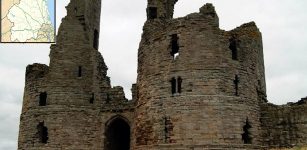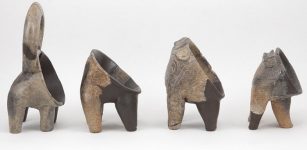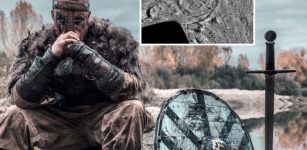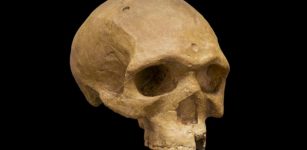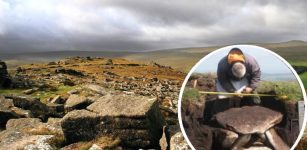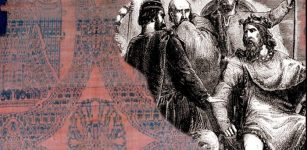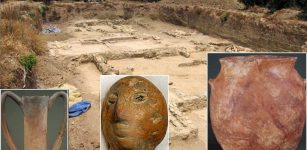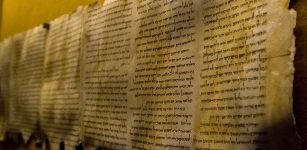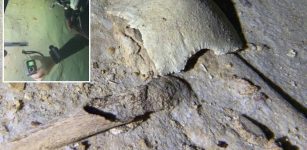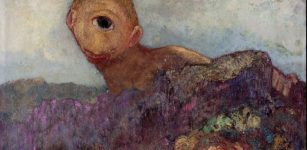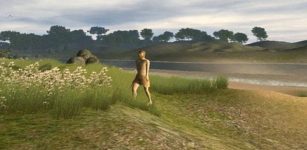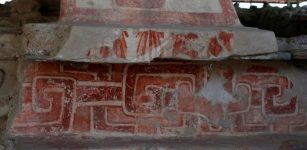Prastio-Mesorotsos Excavations: Neolithic oven prepared food for 200 guests
The 2015 archaeological expedition at the Prastio-Mesorotsos site has been completed, revealing it was seasonally occupied from Prehistoric to Historic periods and was probably a place for cooking meat for a large crowd.
The Department of Antiquities, Ministry of Communications and Works, announced the completion of the 2015 University of Edinburgh archaeological investigation at the multi-period site of Prastio-Mesorotsos in Paphos district.

The excavation of ancient cooking installations was accompanied by a simultaneous experimental archaeology project that resulted in a replica pit oven being built at the restaurant located adjacent to the site. Credit: Department of Antiquities/Republic of Cyprus
The long-lived site has revealed a remarkable sequence of prehistoric and historic period remains. This season the project uncovered traces of the pre-ceramic and ceramic Neolithic, the Chalcolithic period, the Early and Middle Cypriot Bronze Age and the Byzantine and Frankish periods.
The prehistoric remains show an early phase in the pre-ceramic Neolithic period when the site was probably seasonally inhabited.
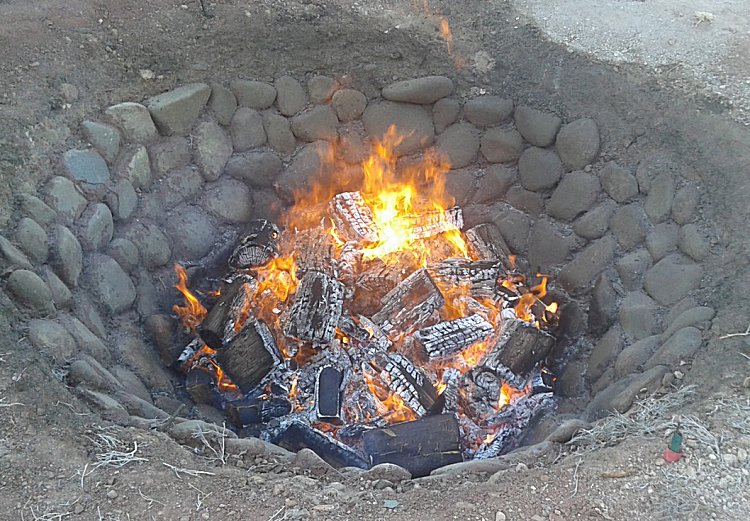
The excavation of these ancient cooking installations was accompanied by a simultaneous experimental archaeology project that resulted in a replica pit oven being built at the restaurant located adjacent to the site. Photo credits: Department of Antiquities/Republic of Cyprus
Attributed to this phase, a large (2.5-3m diameter) oven pit and a smaller-scale domed oven were previously discovered. In 2015 more evidence for their use and function in the ancient community were excavated.
A great piece of finding about the size of the oven pit structure was not only that it was capable of cooking meat but it also showed it was ideal for cooking for large groups of people.

At the top of the rocky outcrop around which the site is situated, a previously excavated building was further investigated in 2015. Photo credits: Department of Antiquities/Republic of Cyprus
The excavations were conducted from June 3 to July 8 this year under the supervision of Dr. Andrew McCarthy, Fellow of the School of History, Classics and Archaeology at the University of Edinburgh, and Director of the Cyprus American Archaeological Research Institute (CAARI).
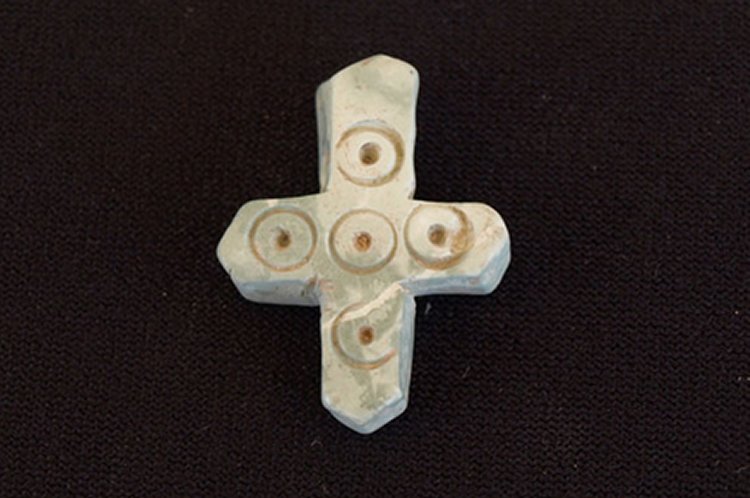
A picrolite ornament, originally made in the Bronze Age (as seen in the dotted-circle pattern typical of this era), recut during the Byzantine period into a Christian cross. Photo credits: Department of Antiquities/Republic of Cyprus
The excavations at the multi-period site of Prastio-Mesorotsos in the Pafos district were conducted by the University of Edinburgh from the 3rd of June to the 8th of July 2015. The team is led by Dr. Andrew McCarthy, Fellow of the School of History, Classics and Archaeology at the University of Edinburgh, and Director of the Cyprus American Archaeological Research Institute (CAARI).
The project involved the cooperation of an international team of specialists and field school students getting a summer experience on the archaeological dig.
AncientPages.com

